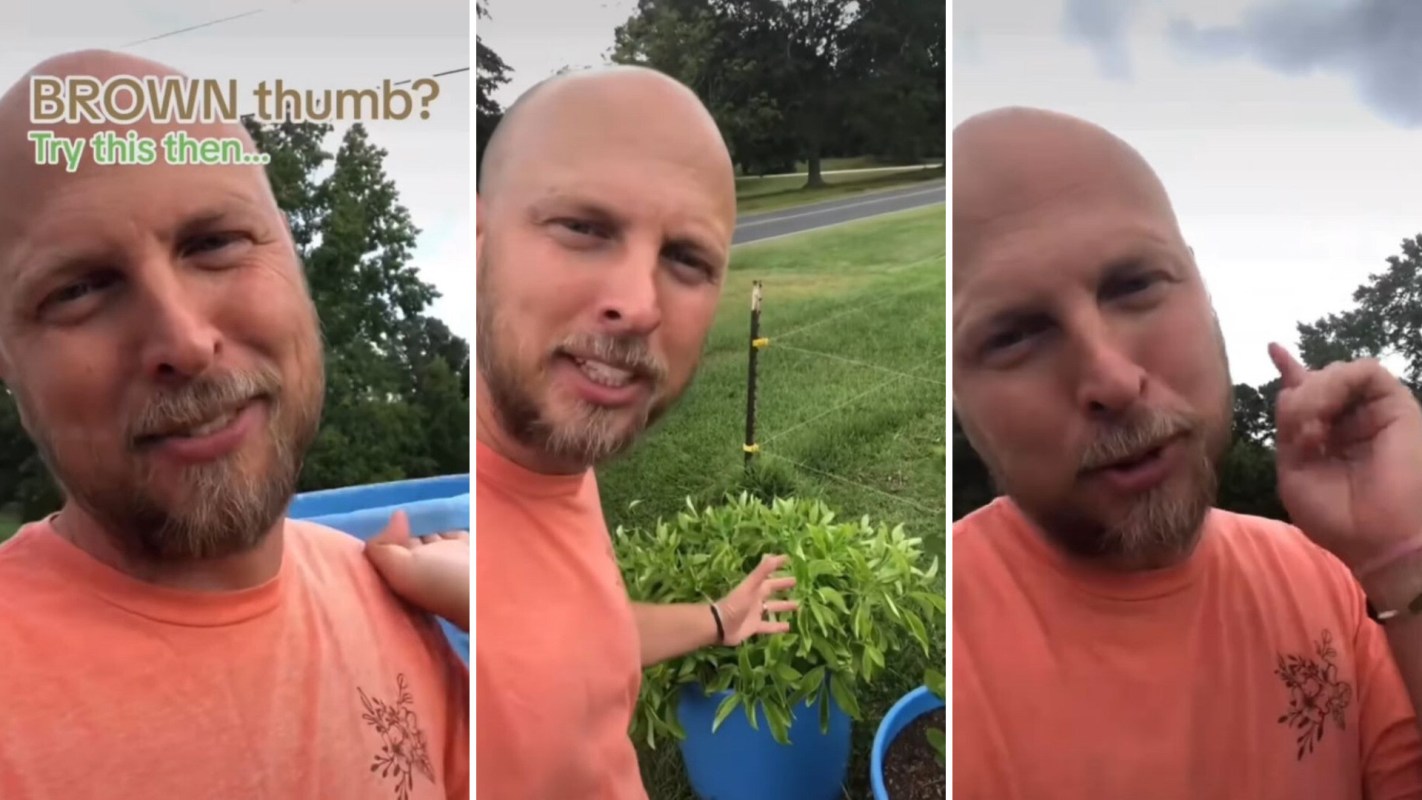Brown thumbs, rejoice: Collin (@saltyacresnc) is here to help struggling gardeners succeed with a few helpful tips. In a recent Instagram video, he teaches how to avoid two of the biggest mistakes new gardeners often make.
The scoop
According to Collin, who runs Salty Acres plant nursery in North Carolina, two main problems new gardeners tend to encounter are under-watering and poor soil management.
To avoid underwatering, he suggests beginning gardeners first grow their plants in self-wicking containers that provide a constant source of water. He demonstrates how to set up these containers in a separate video using a large plastic tub, some PVC pipe, and an empty milk jug. These containers self-regulate their water intake so the plants are never over- or under-watered.
About poor soil management, he recommends a mixture of manure compost, peat moss, and pine bark mulch. This blend provides essential nutrients the plants need, such as nitrogen, phosphorus, and potassium, while allowing room for the roots to grow easily.
For those who prefer not to use livestock manure, there are plenty of alternatives, such as mushroom compost or worm castings.
"You've gotta start growing things this way first," Collin says, "so you can graduate and grow things another way."
How it's helping
Collin's self-wicking containers keep plants hydrated even if beginning gardeners forget to water them or are unsure when to do so. Growing plants, both edible and decorative, can save you money while beautifying your yard and providing food with improved nutrition and taste.
Caring for plants also brings opportunities to learn about and connect with nature, which has been shown to reduce stress. Growing food at home benefits the environment by reducing the harmful pollution created by transporting produce and requires no dangerous chemicals or pesticides. Adding native flowers and other plants to your garden also supports vital pollinators such as bees and butterflies that play a critical role in our food system.
What everyone's saying
"This is golden knowledge," one commenter replied to Collin's tips.
Another agreed: "Your right, the best thing to do is just start planting. I found that its trial and error, and watching videos for tips."
Encouraged by the easy-to-follow advice, another commenter was ready to get started, posting: "With just a few supplies, I can have a green thumb, too."
Join our free newsletter for easy tips to save more, waste less, and help yourself while helping the planet.









